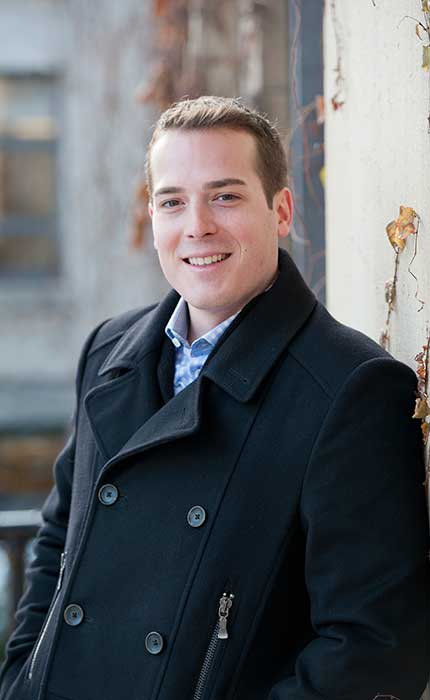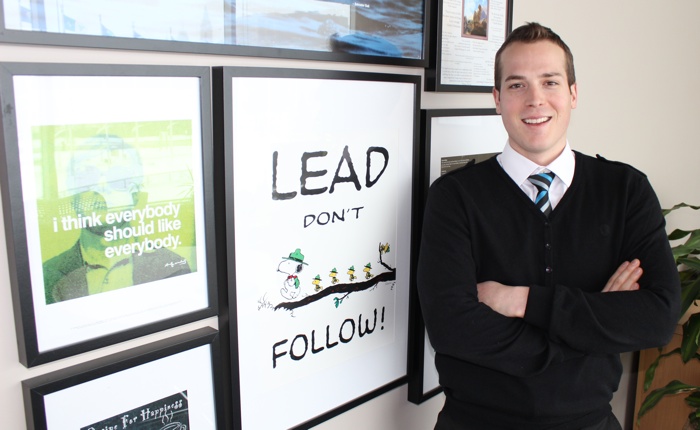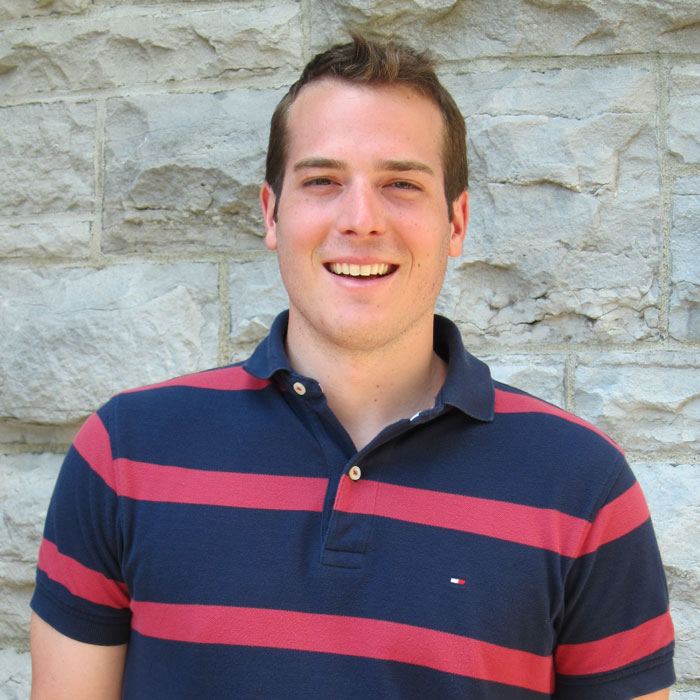Navigating Turbulent Waters
The University of Ottawa is home to many of Mathieu Fleury's constituents. As an alumnus, the first-time city councillor knows this place well.

At only 27, Mathieu Fleury is one of the youngest persons ever elected to city council in Ottawa. Credit: Ottawa City Hall
He’s not even 30-years old and yet, he’s already serving as elected city councillor for the City of Ottawa’s Rideau-Vanier Ward. A two-time graduate of the University of Ottawa, Mathieu Fleury may be young, but this masters-level swimmer has what it takes to navigate the turbulent waters of politics.
Read below for Tabaret’s interview with Fleury.
T- Why choose to start a career in politics—and at such a young age, too—when your university studies were in sports?
MF- I’ve been fascinated by current events for as long as I can remember. I was born to francophone parents in an anglophone environment, and learned early on to pay attention to what was going on around me. But what really set things in motion was when I did my internship for the federal Minister of State (Sport) during the 2010 Olympic Games after finishing my master’s in human kinetics at the University. It was amazing! Participating in the decision-making process and having a real impact on policies that affect people is enriching and instructive.

A photograph that says it all about Mathieu Fleury’s motto. Credit: Ottawa City Hall
T- That’s a challenge you would expect to be taken on by a 50-year-old rather than an almost-30-year-old…
MF- In the political realm, I’ve seen too many white, male lawyers in their sixties. I think it’s time for a breath of fresh air. Better yet: diversity. More women, more immigrants, more differing opinions—otherwise, our political system will become fossilized. I’m contributing in my own way, but we need more, much more.
T- What is the best way to encourage young people, among others, to get involved in politics?
MF- To go into politics, you need contacts—a network that young people won’t have had the chance to build yet. But you also need access to opportunities to get experience. So who’s going to give young people jobs with real opportunities for advancement? Most decision-making structures are headed by people of a certain age. Young people want clear and attainable objectives. Once they’ve proven themselves, they’re ready to take on other challenges, including politics.
T- How do you see Ottawa?

Young and dynamic city councillor Mathieu Fleury wishes Ottawa would develop a genuine, strong identity like Boston or Montreal. Credit: Ottawa City Hall
MF- As a city that doesn’t have its own identity yet. Montreal has one. Boston has one. But Ottawa? Are we a green city? A technology hub? We’re not too sure. Even the NCC can’t paint us a clear picture anymore. In my opinion, Ottawa should set itself apart through its quality of life. We should be all about living in a city that is pleasant and accessible by developing light rail transit, water, parks and family accessibility.
T- How did your time at the University of Ottawa influence your life and your career?
MF- (smiling) I liked the University of Ottawa. I learned to develop my critical-thinking skills and my capacity for rational thought. I learned about leadership and finance, and how to give presentations. I’m healthier thanks to my field of study—human kinetics. The University of Ottawa is my home. My program was offered in English only, but I could hand in my work and write my exams in French. The University is centrally located, near all the essential services. And the professors are highly qualified specialists.
That said, I think the whole university system needs a makeover. I find that it tests memory skills over understanding of the material. I had friends who would show up for exams only, never for class. They’d study for a week and get a passing grade. A month later, they’d have forgotten everything. If you’re an engineer, you should be evaluated by engineers based on what you’ve understood. That’s not how things work in the current system.
T- Do you think you’ll go back to university?
MF- Someday, I might like to do a PhD in social health—to encourage a healthy lifestyle by implementing indicators that measure the effectiveness of health initiatives to find ways of encouraging and rewarding healthy habits in life. That project is very close to my heart.
![]()
